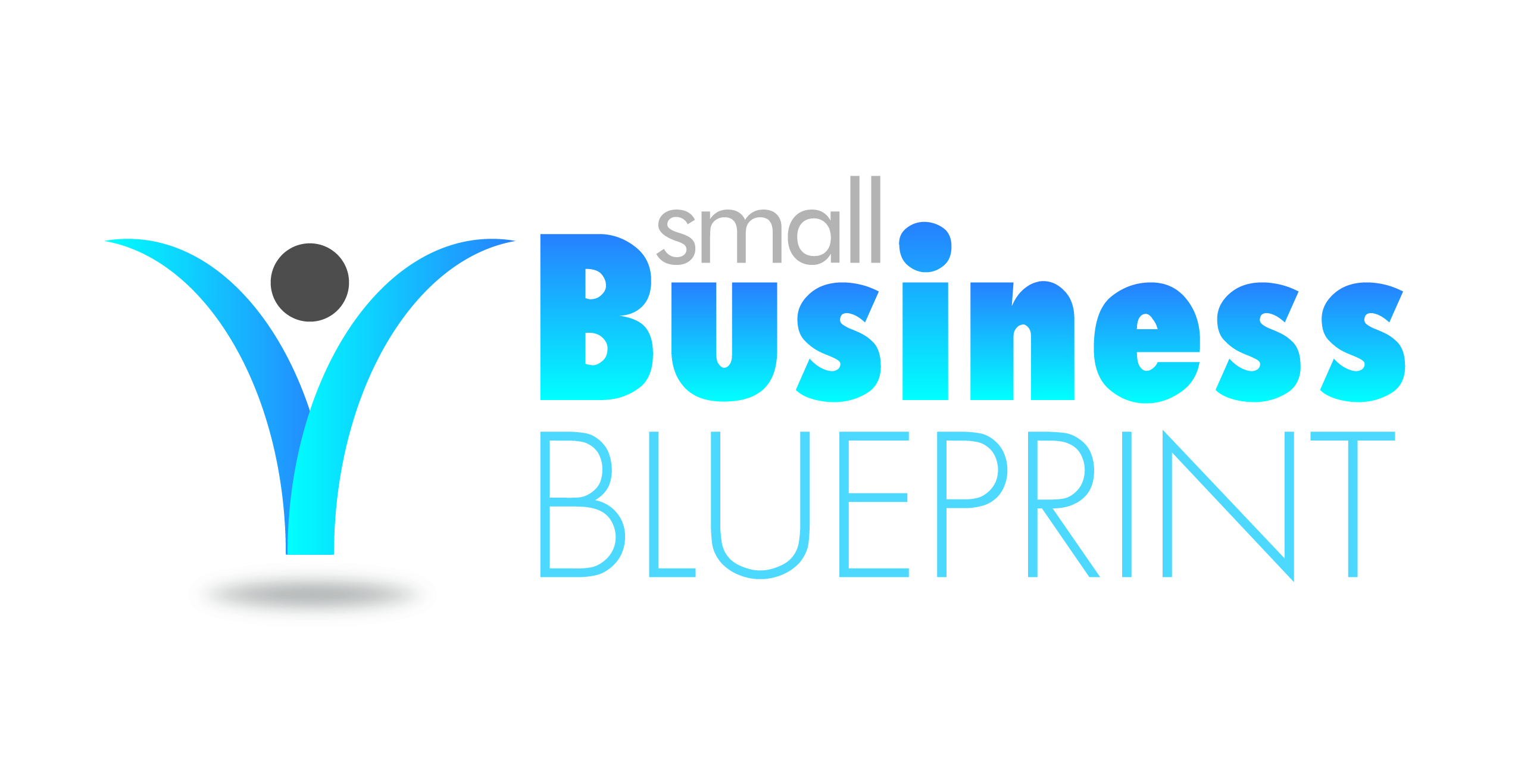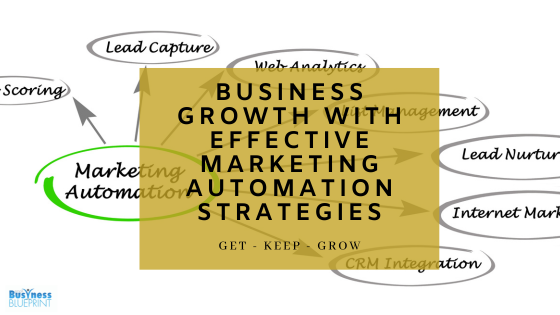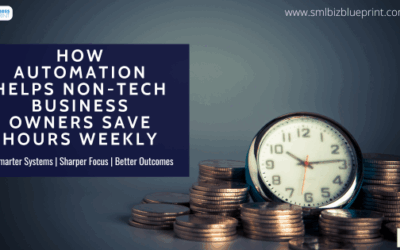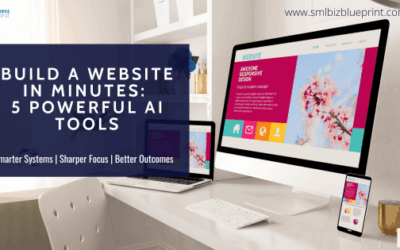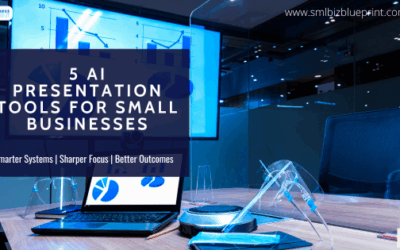As a savvy business owner, you understand the crucial role that effective marketing plays in driving growth.
In today’s dynamic landscape, embracing innovation is the key to staying ahead. That’s where marketing automation comes into play.
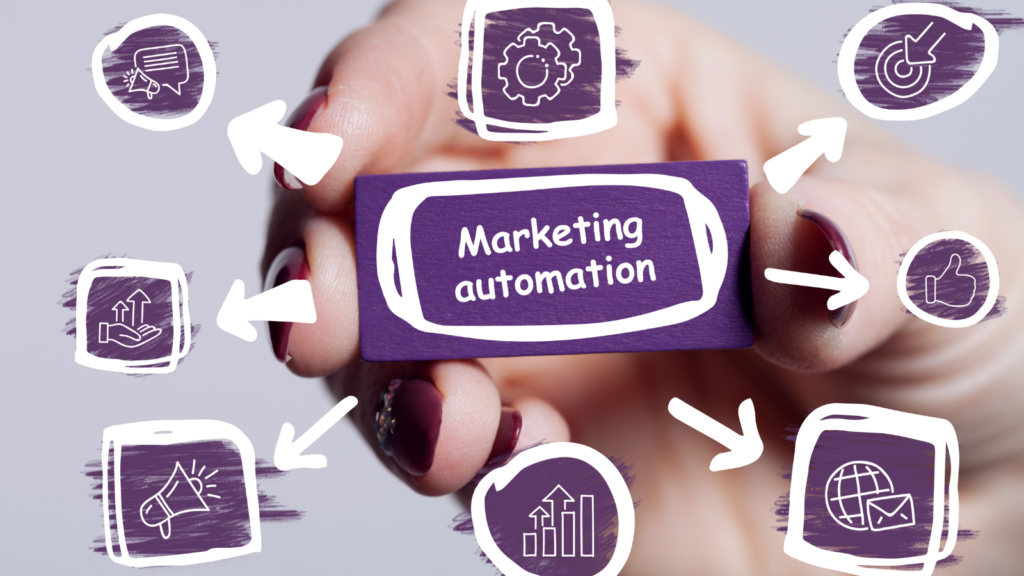
This article will take you on a comprehensive journey into marketing automation, unveiling its power to supercharge your business growth. You’ll be equipped with actionable insights to transform your marketing strategies and achieve remarkable results by the end.
Understanding Marketing Automation
Marketing automation isn’t just a buzzword; it’s a strategic approach that empowers businesses to engage with their audience in a highly personalised and efficient manner.
Unlike traditional methods that require manual intervention, marketing automation leverages technology to streamline processes. It involves customer segmentation, setting up workflows, and orchestrating multi-channel campaigns, all working harmoniously to enhance your marketing efforts.
Actions:
Map Customer Journeys:
Identify key touchpoints in your customer’s journey, from initial awareness to purchase and beyond. This will help you understand where and how to deploy automation for maximum impact.
Segmentation Precision:
Break your audience into segments based on demographics, behaviours, and preferences. Tailoring your messages to these segments ensures relevance and engagement.
Start Small, Scale Smart:
Begin with a single automated campaign, like a welcome email series. As you become comfortable with the process, gradually expand to more complex campaigns across different channels.
Benefits of Marketing Automation
Imagine having a virtual assistant that nurtures leads, sends tailored messages, and provides insightful data for decision-making.
That’s the magic of marketing automation, and here’s why it matters:
Streamlined Lead Nurturing
Marketing automation allows you to create personalised journeys for your leads.
Instead of bombarding them with generic content, you can deliver relevant information at the right time, guiding them through the sales funnel. This targeted approach leads to higher conversion rates and more satisfied customers.
Time and Cost Efficiency
Manual tasks like sending individual emails and tracking customer interactions can be time-consuming and resource-intensive.
Marketing automation automates these processes, allowing your team to focus on strategic initiatives that drive growth.
Data-Driven Insights
Making informed decisions is the cornerstone of successful marketing.
With automation, you can access a wealth of data, from open and click-through rates to customer behaviour patterns. These insights enable you to fine-tune your campaigns for optimal results.
Actions:
Know Your Metrics:
Identify your business’s most critical key performance indicators (KPIs), such as conversion rates, open rates, and engagement metrics. Regularly track these metrics to measure the success of your automated campaigns.
Content Personalization:
Leverage automation to deliver highly personalised content to your audience. Use dynamic content features to customise emails based on subscriber data, increasing engagement.
Test and Iterate:
Regularly test different elements of your automated campaigns, such as subject lines, email content, and send times. Use A/B testing to refine your approach and improve performance over time.
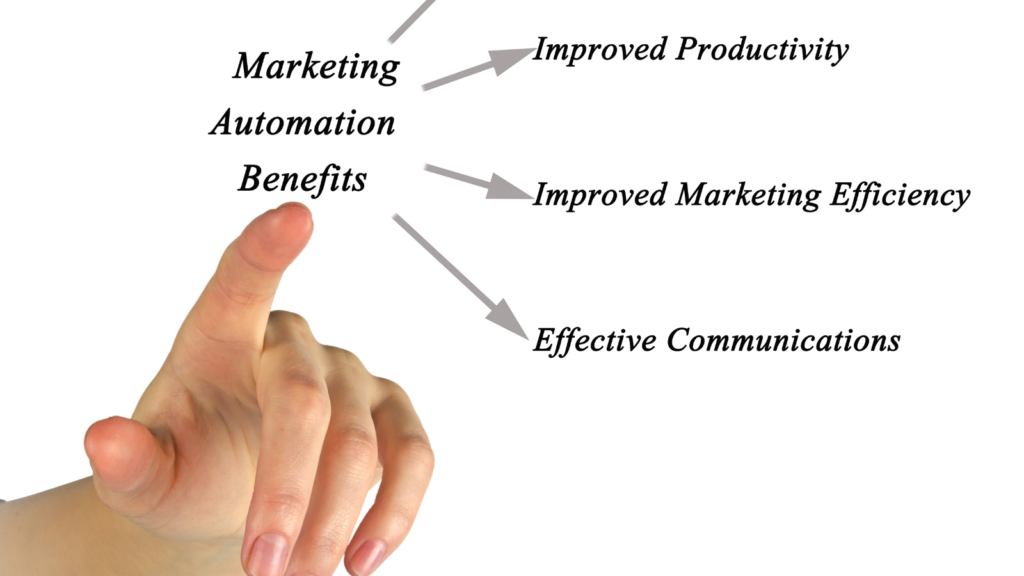
Implementing Marketing Automation
Before diving headfirst into the world of marketing automation, it’s crucial to assess your business needs and choose the right tools.
Each business is unique, and selecting the most suitable platform ensures a seamless automation integration into your existing processes.
Assessing Your Needs
Start by outlining your goals. Do you want to increase lead generation, improve customer retention, or boost sales?
Understanding your objectives will help you choose a platform that aligns with your business priorities.
Choosing the Right Tools
Numerous marketing automation tools are available, catering to businesses of all sizes.
Research platforms like HubSpot, Marketo, and ActiveCampaign. Look for features that resonate with your goals, such as lead scoring, CRM integration, and A/B testing capabilities.
Actions
Set Clear Goals:
Define specific goals for your automated campaigns, such as increasing lead conversion rates by 15% within three months. This clarity will guide your strategy and measure success.
Choose the Right Tool:
Research marketing automation platforms that align with your business size and goals. Opt for a platform with features like segmentation, workflow automation, and reporting capabilities.
Invest in Training:
Provide training to your team on effectively using the chosen automation tool. This investment will ensure everyone is on board and using the tool to its fullest potential.
Crafting Effective Automated Campaigns
Effective automated campaigns are the heart of marketing automation. Let’s explore key strategies to create campaigns that resonate with your audience and drive results.
Creating Customer Personas
Before sending any automated message, you need to understand your audience.
Craft detailed customer personas encompassing demographics, pain points, preferences, and aspirations. This forms the foundation for highly personalised campaigns.
Segmentation Strategies
Not all customers are the same, and treating them as such can lead to disengagement.
Segment your audience based on behaviour, purchase history, and interests. This segmentation allows you to deliver targeted messages directly to their needs.
Email Campaigns
Email remains a powerful channel for engaging with your audience.
Automated email campaigns, such as drip and triggered emails, deliver the right content at the right time. Automation ensures timely interactions by welcoming new subscribers or recovering abandoned carts.
Actions
Persona Refinement:
Continuously update your customer personas based on new insights and data. This ensures that your automated campaigns remain aligned with evolving customer needs.
Test Subject Lines:
Experiment with different subject lines to find the ones that resonate most with your audience. A compelling subject line can significantly impact email open rates.
Triggered Emails:
Implement triggered emails for actions like abandoned carts or post-purchase follow-ups. These automated messages address customers’ immediate needs, enhancing their experience.
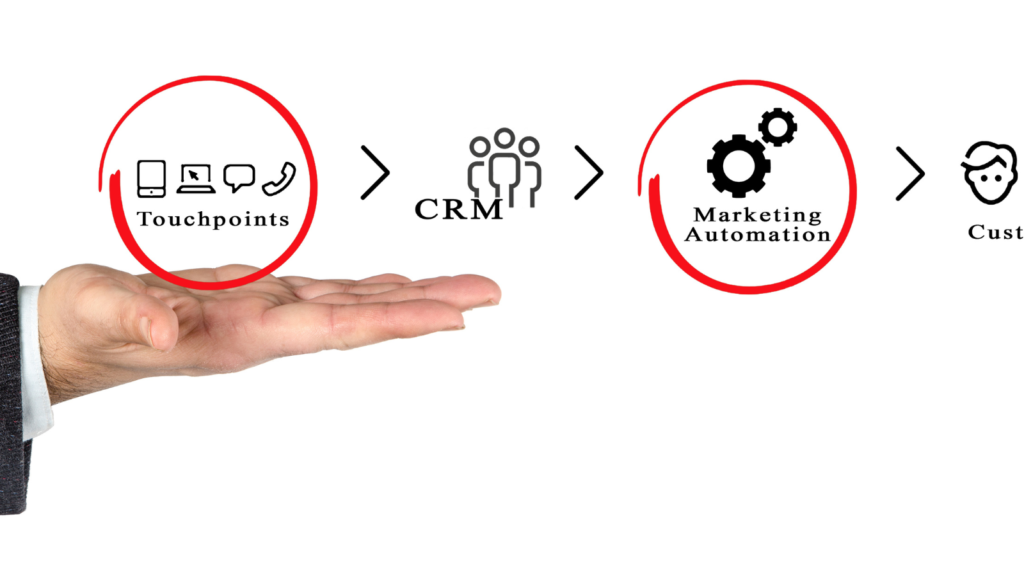
Best Practices for Success
While marketing automation is a game-changer, success lies in following best practices that align with your business’s values and goals.
Quality Over Quantity
Reaching a wide audience is tempting, but quality always triumphs over quantity. Focus on nurturing a smaller, engaged group of leads, delivering content that resonates and provides value.
Testing and Optimization
Marketing automation is not a one-and-done deal. Continuously test different subject lines messaging, and send times to uncover what resonates best with your audience.
Optimisation is an ongoing process that leads to exponential growth.
Compliance and Personalization
Striking the balance between personalised messaging and data privacy regulations is crucial.
Ensure your automated campaigns comply with laws like GDPR and CAN-SPAM while delivering a personalised experience.
Case Studies of Successful Implementation
Let’s take a closer look at how real businesses have harnessed marketing automation to achieve impressive growth:
- FreshFit
By implementing marketing automation, FreshFit, an online health store, it has increased its customer retention rate by 40%. They tailored automated email recommendations based on individual purchase history, leading to higher customer satisfaction and repeat purchases. - TechWave
TechWave, a software company, utilised marketing automation to nurture leads through their complex sales cycle. By sending targeted content at each stage, they witnessed a 25% decrease in the sales cycle duration and a 20% increase in deal closures.
Overcoming Challenges
While the benefits of marketing automation are undeniable, challenges may arise during implementation. Here’s how to tackle them head-on:
Change Management
Transitioning to automation might meet resistance within your team. Offer comprehensive training to ensure everyone understands and sees the new processes’ value.
Data Management
Effective automation relies on accurate data. Regularly clean and update your contact lists to prevent communication errors and ensure the right messages reach the right people.
Actions
Content Quality:
Prioritize quality over quantity in your automated campaigns. Craft compelling content that adds value to your audience’s lives, fostering deeper connections.
Continuous Learning:
Stay updated on marketing automation trends by attending webinars, reading industry blogs, and participating in online communities. This ongoing learning will keep your strategies fresh and effective.
Compliance Vigilance:
Stay informed about data privacy regulations like GDPR and CCPA. Ensure your automated campaigns comply with these regulations while delivering a personalised experience.
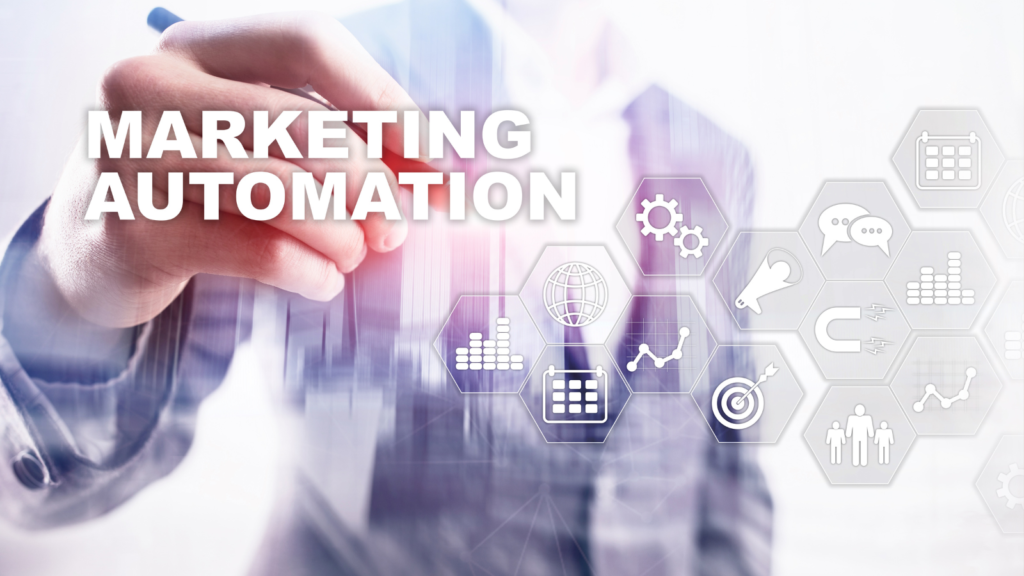
Future Trends in Marketing Automation
The future of marketing automation is promising, with emerging trends poised to redefine the landscape:
AI-Powered Automation
Artificial intelligence enhances automation by analysing vast amounts of data and predicting customer behaviour. This enables even more precise targeting and personalised experiences.
Chatbots and Conversational Marketing
Chatbots are becoming sophisticated conversation partners, providing instant customer support and guiding users through the buyer’s journey in real-time.
Actions
AI Integration:
Explore AI-powered tools and technologies to enhance your automation efforts. These tools can provide predictive insights, further refining your targeting.
Chatbot Adoption:
Consider implementing chatbots on your website and social media platforms. These automated assistants can provide instant support to visitors, enhancing their experience.
Experiment with Video:
As content grows in popularity, explore ways to integrate video into your automated campaigns. Video can convey messages effectively and engage your audience.
Conclusion: Your Path to Accelerated Growth
In today’s fast-paced business world, staying competitive demands innovation. Marketing automation is your ticket to achieving accelerated growth by maximising efficiency, personalising interactions, and leveraging data-driven insights.
You’ll witness transformative results by understanding your audience, implementing the right tools, and crafting engaging automated campaigns. Embrace the future of marketing, and embark on your journey to success.
FAQs:
Q1. What is marketing automation?
A1: Marketing automation is a strategic approach that uses technology to automate marketing tasks, streamline processes, and deliver personalised, timely messages to target audiences.
Q2. How does marketing automation benefit my business?
A2: Marketing automation enhances lead nurturing, saves time and costs, and provides valuable data-driven insights for better decision-making.
Q3. How do I implement marketing automation?
A3: Start by assessing your business needs, then choose the right automation platform. Craft effective automated campaigns by creating customer personas, segmenting your audience, and leveraging email campaigns.
Q4. What are some successful examples of marketing automation?
A4: FreshFit increased customer retention by 40% by delivering personalised email recommendations. TechWave decreased its sales cycle duration by 25% and boosted deal closures by 20%.
Q5. What challenges might I face with marketing automation?
A5: Common challenges include change management within your team and maintaining accurate and updated data.
Q6. What does the future hold for marketing automation?
A6: Emerging trends include AI-powered automation for enhanced personalisation and chatbots for real-time conversational marketing.
Ready to supercharge your business growth?
Embrace marketing automation’s potential and embark on a journey to transform your marketing strategies. Take the first step towards accelerated success!
